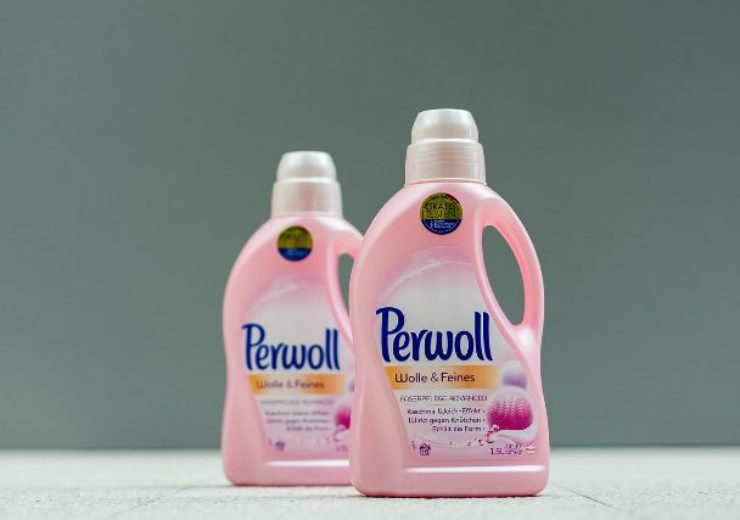Chemical recycling facilitates plastic waste that cannot be recycled mechanically to be reintroduced into the material cycle

Image: The first Perwoll bottles from chemically recycled plastic. Photo: courtesy of Henkel AG & Co. KGaA.
Consumer goods firm Henkel has produced its first bottles from chemically recycled plastic, in a bid to reduce plastic waste.
Henkel has collaborated with BASF and Alpla on the ChemCycling project, as part of its commitment to sustainable packaging.
The mixed-plastic waste can be efficiently reprocessed and reused via chemical recycling.
Henkel’s Perwoll bottles are produced using chemically recycled plastic. The pilot project with Perwoll bottles is part of the ChemCycling project led by BASF.
Henkel home care international packaging development head Dr Thorsten Leopold said: “Mechanical recycling is limited by the fact that not all plastic waste can be reprocessed into useable material. Thanks to chemical recycling, fossil resources can be replaced with recycled material made from plastic waste.”
Chemical recycling will help replace fossil resources with recycled material made from plastic waste
Mechanical recycling includes crushing, cleaning and reprocessing separated plastic waste back into granulate form. Under this method, the quality of the resulting recycled product will be based on the input material.
Chemical recycling enables to reintroduce the plastic waste into the material cycle, which cannot be recycled mechanically.
The thermo-chemical processes will be used by ChemCycling for the conversion of plastic waste into pyrolysis oil.
The secondary raw material produced during the process can be used as feedstock for the chemical industry to produce plastic for several applications, including packaging.
According to the company, the packaging produced using chemically recycled materials will have the same quality as packaging made of new plastic.
The company is also a member of the German Rezyklat-Forum, the global Alliance to End Plastic Waste (AEPW) and the New Plastics Economy (NPEC).
Alpla chief commercial officer Nicolas Lehner said: “Through chemical recycling the resource plastic can be durably retained within the material cycle – the carbon it contains can thereby be reused. This is how chemical recycling could complement established technologies like mechanical recycling.”
Separately, Henkel has made a strategic investment in German recycling specialist Saperatec to support the development of a circular economy.
